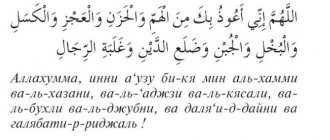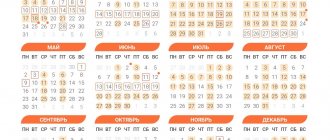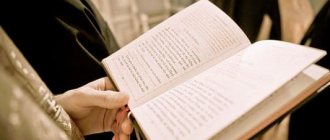Whose duas will Allah definitely answer?
There are some conditions that strengthen the dua or, on the contrary, weaken them. For example, there are some categories of people whose dua is not rejected. This is stated in the hadith:
“Three calls (duas) will be answered, there is no doubt about it: the dua of the one who was treated unfairly, the dua of the traveler and the dua of the parent for his child . ( "Dua of a parent against his child ." (Ahmad 2/258))
Sheikh al-Albani confirmed the authenticity in al-Sahiha 596.
Let's add this hadith:
“The dua of three people is not rejected: the dua of a parent, the dua of a fasting person and the dua of a traveler.”.
(The authenticity was confirmed by Sheikh al-Albani in al-Sahiha 1797.
And we get 4 categories of people whose dua is not rejected by Allah:
- Dua of the fasting person until he eats;
- Dua for a traveler while he is on his way;
- Dua of one of the parents for or against their child;
- Dua of someone who has been treated unfairly.
Therefore, if you happen to be someone from this list, then Allah will definitely answer your prayers. But when you turn to Allah with dua, be patient and do not say: “I asked Allah, but He did not give it to me.” Allah is Wise and will answer you at the right and appropriate moment.
Subscribe to our Instagram @citaty_korana
Review and meaning of the Rabban texts
Dua is pronounced by Muslims every day, it is written in the Holy Book of the Islamic people: man is a creature with imperfections, shortcomings, he is prone to despair, sins, doubts. Having lost hope, having lost support, the Almighty remains nearby, whose name will show the path to forgiveness, truth, and peace.
The Koran describes what a Muslim believer should strive for, what one can ask the Creator for through the Rabban prayer. Allah has placed a blessing in the Holy Book: having learned its wisdom, you will be able to find the path to happiness. The Scripture contains dua for every occasion in life; reciting the lines guides the believer, helps to overcome a difficult period, and find a way out of the current situation. Words to play:
- Rabbana TakkabbalMinaInaka Anta As-sami Ul'AlimAu TubAlayna, InnakaAnta TtauabuRrahim - an appeal to the Lord with a request to accept repentance.
- RabbanaLaTuzig KulubanaBadaIz Hadaitan UahabLyana MinLyadunka Rakhmatan, InakaAntal Uahayu - dua for guidance on the straight path.
- Rabbana AlTuakhizna InNasita - a prayer for pardon when committing sins, the gift of knowledge that will prevent mistakes from being made.
- RabbanaAfrig Alayna - to gain strength in the fight against unbelievers, instructions for living according to the laws of the Lord.
- RabbanaGrifLyan - dua for forgiveness when committing excesses and sins.
- Rabbana HabLiMin - a prayer is said when one wishes to prolong the family line or have offspring.
- RabbanaAtinaMin - a request for support in the intended matter.
Prayers are said in moments of happiness, grief, and difficulties. The dua belonging to Rabban atinya fiddunyi is recited unchanged, every day, this is a ritual of the faithful at the beginning of the day. Allah will hear the appeal and grant the Muslim good in both worlds.
Whose duas may Allah not answer?
“A man on a long journey, with disheveled hair and covered in dust, will raise his hands to the sky, crying, “Oh, Lord! Oh Lord! But his food is haram, his drink is haram, and he was raised on haram. So how will his dua be accepted?”
(Muslim, zakat: 19; Tirmidhi, tafsir: 3)
A person’s bad deeds reduce the strength of his dua, so it is very important to do as many good deeds as possible so that they cover up the bad ones, and then your dua will be stronger and rise very high. In other words, the strength of your dua directly depends on you, on your position before Allah. From your sincerity and faith in what you do.
Rules for reading Rabban
Conversing with Allah through dua can change a person's destiny when other means have failed. Prayer for a Muslim is a way to express respect and gratitude to the Creator for his creations, for the life he has received, and the opportunity to enjoy earthly joys.
The dua of Saint Rabban atin Fedunya is pronounced daily after morning prayer, performed from the moment a light stripe appears on the horizon until sunrise. They say a prayer in the second rakat after the end of Surah Al-Fatiha.
Before reading the lines from the Rabban, the believer washes his limbs, puts on clean clothes, and turns his face towards the qibla. Hands are placed in front of you with palms open up. Dua is considered a manifestation of humility, respect for Allah; if a sin has been committed, the individual repents before God and promises to make amends.
Dua with the words of Rabbana atina fiddunya is pronounced with the usual volume, avoiding raised tones and whispers. They pray in Arabic, this shows Allah how much a Muslim needs God's help, it is an acknowledgment of the predicament in which the believer finds himself.
Reading dua after morning prayer is a favorable time to turn to the Almighty; Allah hears the words of the Rabban and answers the prayers of those who call. Believing in the power of prayer will help bring about positive change.
Morning and evening remembrance of Allah
Imam Abu Amr ibn as-salah, may Allah have mercy on him, was asked how much one must remember Allah in order to be among those men and women who often remember Allah, to which he replied: “A person is among those who remember Allah often.” , if he constantly repeats the words of remembrance, which, as is known from reliable hadiths, were pronounced by the Prophet, peace and blessings of Allah be upon him. And he does this morning and evening, at different times and in different circumstances, night and day.”
50 ₽
Start shopping
Dua and dhikrs after prayer according to the Sunnah
Shaykh al-Islam Yahya ibn Sharaf al-Nawawi said in his book Al-Adhkar (page 70):
“All scholars agreed on the desirability of saying words of remembrance (dhikr) after prayer. There are many authentic hadiths that give examples of what words the Prophet (peace and blessings of Allaah be upon him) uttered in such cases.”
Azkars that the Prophet (peace and blessings of Allaah be upon him) read after prayer
1. Astaghfiru-Llah, Astaghfiru-Llah, Astaghfiru-Llah. Allahumma anta-s-salamu wa min-kya-s-salamu, tabarakta, ya Za-l-jalali wa-l-ikram!
اللَّهُمَّ أنْتَ السَّلاَمُ ، وَمِنْكَ السَّلاَمُ ، تَبَارَكْتَ ي َاذَا الجَلاَلِ وَالإكْرَامِ
Translation: “I ask Allah for forgiveness. I ask Allah for forgiveness. I ask Allah for forgiveness. O Allah, You are Peace and from You comes peace, blessed are You, O Possessor of greatness and generosity!”
It is reported that Sauban, may Allah be pleased with him, said: “After finishing his prayer, the Messenger of Allah, may Allah bless him and grant him peace, always asked Allah for forgiveness three times, and then said: “Allahumma anta-s-Salamu wa min-kya- s-salamu, tabarakta, ya Za-l-jalyali wa-l-ikram!” (O Allah, You are Peace and from You comes peace, blessed are You, O Possessor of greatness and generosity!).” Al-Auza'i, who was one of the transmitters of this hadith, was asked: “How [should] ask Allah for forgiveness?” - [to which] he replied: “Say: “I ask Allah for forgiveness, I ask Allah for forgiveness.” (Astaghfiru-Llah, astaghfiru-Llah).” (Muslim)
2. La ilaha illa-Allahu wahda-hu la sharika la-hu. La-hu-l-mulku, wa la-hu-l-hamdu wa hua 'ala kulli shai'in kadir! Allahumma, la mani'a li-ma a'taita, wa la mu'tiya li-ma mana'ta wa la yanfa'u z-l-jaddi min-kya-l-jadd.
اللَّهُ هُ الحَمْدُ وَهُوَ على كُلّ شئ قَدِيرٌ، اللَّهُمَّ لا مانِعَ لِمَا أ عْطَيْتَ، وَلاَ معطي لما مَنَعْتَ، وَلا يَنْفَعُ ذا الجد مِنْكَ الجَ دُّ
Translation: “There is no god but Allah alone, Who has no partner. Dominion belongs to Him, praise belongs to Him, He can do everything! O Allah, no one will deprive what You have given, and no one will give what You have deprived, and the wealth of the one who has wealth will be useless before You.”
It is reported that al-Mughira bin Shu'ba, may Allah be pleased with him, said: “After each obligatory prayer, the Prophet (peace and blessings of Allaah be upon him) used to say: “La ilaha illa Allahu wahda-hu la sharika la-hu.” . La-hu-l-mulku, wa la-hu-l-hamdu wa hua 'ala kulli shai'in kadir! Allahumma, la mani'a li-ma a'taita, wa la mu'tiya li-ma mana'ta wa la yanfa'u z-l-jaddi min-kya-l-jadd.” (There is no god except Allah alone, Who has no partner. To Him belongs sovereignty, to Him be praise, He can do everything! O Allah, no one will deprive what You have given, and no one will give what You have deprived, and useless before You will have the wealth of the one who has wealth).” (Al-Bukhari, Muslim)
3. La ilaha illa-Allahu wahda-hu la sharika la-hu. La-hu-l-mulku, wa la-hu-l-hamdu wa hua 'ala kulli shai'in kadir! La hawla wa la quwwata illa bi-Llah, la ilaha illa-Llahu wa la na'bud illa iya-hu. La-hu-n-ni'matu wa la-hu-l-fadlu, wa la-hu-s-sana'u-l-hasan. La ilaha illa-Allahu, mukhlisina la-hu-d-dina, wa lau kariha-l kafirun!
All rights reserved. ُ الحَمْدُ وَهُوَ على كُلّ شئ قَدِيرٌ، لا حَوْلَ وَلاَ قُوَّةَ إِلاَ All rights reserved. النِّعْمَةُ ولَهُ الفَضْلُ، وَلَهُ الثَّناءُ الحَسَنُ، لا إلهَ إِلا َّ الله مُخْلِصِينَ لَهُ الدِّينَ وَلَوْ كَرِهَ الكافِرُونَ
Translation: “There is no god but Allah alone, Who has no partner. Dominion belongs to Him, praise belongs to Him, He can do everything! There is no power and strength except Allah, and we do not worship anyone except Him. He shows good deeds and mercy, and He (should be given) due praise. There is no god but Allah, and we are sincere in our confession of religion before Him, even if it is hateful to the unbelievers!”
It is reported that after each prayer, 'Abdullah bin az-Zubayr, may Allah be pleased with them both, said: “La ilaha illa-Allahu wahda-hu la sharika la-hu. La-hu-l-mulku, wa la-hu-l-hamdu wa hua 'ala kulli shai'in kadir! La hawla wa la quwwata illa bi-Llah, la ilaha illa-Llahu wa la na'bud illa iya-hu. La-hu-n-ni'matu wa la-hu-l-fadlu, wa la-hu-s-sana'u-l-hasan. La ilaha illa-Allahu, mukhlisina la-hu-d-dina, wa lau kariha-l kafirun!” (There is no god except Allah alone, Who has no partner. To Him belongs dominion, to Him be praise, He can do everything! There is no power and strength in anyone except Allah, and we worship no one except Him. He provides benefits and mercy , and to Him (should be given) worthy praise. There is no god but Allah, and we are sincere in confessing religion before Him, even if it is hateful to the unbelievers!). It is reported that Ibn az-Zubayr said: “The Messenger of Allah (peace and blessings of Allaah be upon him) said these words after every prayer” (Muslim).
4. Allahumma, a'in-ni 'ala zikri-kya, wa shukri-kya wa husni 'ibadati-kya.
All rights reserved. تِكَ
Translation: “O Allah, help me to remember You, thank You and worship You properly.”
It is reported from the words of Mu'az, may Allah be pleased with him, that (one day) the Messenger of Allah, may Allah bless him and grant him peace, took him by the hand and said: “O Mu'az, I swear by Allah, verily, I love you and punish you you, O Mu'az, never forget to say after each prayer: “Allahumma, a'in-ni 'ala zikri-kya, wa shukri-kya wa husni 'ibadati-kya" (O Allah, help me remember You, thank You You and properly worship You)." (Abu Dawud, an-Nasai)
5. “Subhanallah” (Glory be to Allah) – 33 times, “Alhamdulillah” (Praise be to Allah) – 33 times, “Allahu akbar” (Allah is great) – 33 times.
Then say: “La ilaha illa Allahu wahda-hu la sharika la-hu.” La-hu-l-mulku, wa la-hu-l-hamdu, wa hua 'ala kulli shai'in kadir!
It is reported from the words of Abu Hurayrah, may Allah be pleased with him, that the Messenger of Allah, may Allah bless him and grant him peace, said: “Whoever, after each prayer, pronounces the words “Subhanallah” (Glory be to Allah) thirty-three times, and the words “ Alhamdulillah” (Praise be to Allah), and the words “Allahu akbar” (Allah is great), saying for the hundredth time: “La ilaha illa Allahu wahda-hu la sharika la-hu.” La-hu-l-mulku, wa la-hu-l-hamdu, wa hua 'ala kulli shai'in kadir! (There is no god but Allah alone, Who has no partner. To Him belongs dominion, and to Him is praise, and He can do everything!) - his sins will be forgiven, even if they are like the foam of the sea. (Muslim)
6. Surahs “Al-Ikhlyas” (112th sura), “Al-Falyak” (113th sura), “An-Nas” (114th sura) – 1 time each.
'Uqba bin 'Amir, may Allah be pleased with him, said: “The Messenger of Allah, may Allah bless him and grant him peace, ordered me to recite Surahs Falyak (Dawn) and Nas (People) after each prayer.” In the version of this hadith, which is cited only by Abu Dawud, it is reported that the suras “Sincerity”, “Dawn” and “People” should be read. (Abu Dawud, at-Tirmidhi, an-Nasai)
7. Ayatul-Kursi (255th verse of Surah al-Baqarah) – 1 time.
It is reported from the words of Abu Umama that the Prophet (peace and blessings of Allaah be upon him) said: “Whoever recites Ayat al-Kursiy after completing each obligatory prayer, nothing will prevent him from entering Paradise except that [ he must first] die.” (Ibn Hibban, at-Tabarani)
8. La ilaha illa-Allahu wahda-hu la sharika la-hu. La-hu-l-mulku, wa la-hu-l-hamd. Yuhyi wa yumitu wa hua 'ala kulli shai'in kadir.
لا إِلهَ إِلاَّ اللَّهُ وَحْدَهُ لاَ شَرِيكَ لَهُ، لَهُ المُلْكُ و َلَهُ الحَمْدُ يُحْيي وَيُمِيتُ وَهُوَ على كُلّ شَيْءٍ قَدِيرٌ
Translation: “There is no god but Allah alone, Who has no partner. To Him belongs the dominion and to Him be the praise! He gives life and causes death, and He can do all things.”
10 times after morning prayer and 10 times after evening prayer. At the same time, it is advisable, according to the hadith, to remain in one’s place and not talk to anyone.
It is narrated from the words of Abu Dharra, may Allah be pleased with him, that the Messenger of Allah, may Allah bless him and grant him peace, said: “Whoever, remaining on his knees and not speaking (to anyone) after the morning prayer, says ten times: “La ilaha illa-Allahu wahda-hu la sharika la-hu. La-hu-l-mulku, wa la-hu-l-hamd! Yuhyi wa yumitu wa hua 'ala kulli shai'in qadir" (There is no god except Allah alone, Who has no partner. To Him belongs dominion and to Him is praise! He gives life and death, and He is capable of everything), ten good things will be written down deeds, the records of his ten bad deeds will be erased, and he will be elevated ten degrees. (In addition,) on this day (such a person) will be protected from all evil and not a single sin will be recorded for him, except the sin of polytheism.” (Ahmad, at-Tirmidhi)
'Umara bin Shubaib said the Messenger of Allah (peace and blessings of Allah be upon him) said: “To the one who, after the sunset prayer, says ten times: “La ilaha illa-Allahu wahda-hu la sharika la-hu.” La-hu-l-mulku, wa la-hu-l-hamdu! Yuhyi wa yumitu wa hua 'ala kulli shai'in qadir" (There is no god but Allah alone, Who has no partner. To Him belongs dominion and to Him is praise! He gives life and death, and He is capable of everything), Allah Almighty will guide the guards who will protect him from the shaitan until the morning, and for this Allah will write down for him the completion of ten good deeds, (for each of which he will certainly be admitted to paradise), and will erase the records of his ten grave sins, and for (the one who utters such words,) it will be equivalent to the liberation of ten believers from slavery.” (At-Tirmidhi, an-Nasai)
9. Allahumma, ajir-ni mina-n-nar! – 7 times after morning and 7 times after evening prayer.
اللَّهُمَّ أجِرْنِي مِنَ النَّارِ
Translation: “O Allah, protect me from fire.”
Narrated by Muslim b. al-Harithah at-Tamimi that (one day) the Messenger of Allah (peace and blessings of Allah be upon him) told him in confidence: “When you finish performing the sunset prayer, say seven times: “Allahumma, ajir-ni mina-n-nar!” (O Allah, protect me from fire) - and truly, if you say this and die on this night, it will be written that you are protected from fire. And when you finish performing the morning prayer, say the same words, and, verily, if you say this and die on that day, it will be written that you are protected from fire.” (Abu Daoud)
10. Reading salawat to the Prophet, peace and blessings of Allah be upon him.
Allahumma salli 'ala Muhammadin wa 'ala ali Muhammad.
مُحَمَّدٍ وَعَلَى آلِ مُحَمَّدٍ
Translation: O Allah, bless Muhammad and the family of Muhammad.
This is the shortest form of salawat to the Prophet, may Allah bless him and grant him peace. There are also more expanded forms of salavat.
It is reported that Fadala ibn 'Ubaydullah, may Allah be pleased with him, said: “The Messenger of Allah, may Allah bless him and grant him peace, said: “At the end of the prayer, let each of you begin to praise Allah Almighty and glorify Him, then call upon blessings.” against the prophet, and then turn to Allah with prayers for what he desires.” (Ahmad, at-Tirmidhi, an-Nasai).
This hadith in general encourages one to praise and glorify Allah, as well as to read salawat on the Prophet, peace and blessings of Allah be upon him, and then make dua.
Dua that the Prophet (peace and blessings of Allaah be upon him) read.
After the obligatory prayer, the Sunnah is to turn to Allah with a prayer (dua).
It is reported that Abu Umama, may Allah be pleased with him, said: “ [Once] the Messenger of Allah (peace and blessings of Allah be upon him) was asked: “Which prayers are most likely to be heard?” - to which he replied: “Those who are treated at the end of the night and after the obligatory prayers .” (At-Tirmidhi).
The dua should begin with the words of praise to Allah Almighty: “Alhamdulillahi Rabbil 'alamin”, then say salawat to the Prophet Muhammad, may Allah bless him and grant him peace: “Allahumma salli ala Muhammadin wa ala ali Muhammadin wa sallim” and then read the dua. The dua should also be completed by praising Allah and reciting salawat to the Prophet, may Allah bless him and grant him peace.
It is reported that Fadala bin Ubayd, may Allah be pleased with him, said: “ (Once) the Messenger of Allah, may Allah bless him and grant him peace, heard how one person during his prayer began to make supplications to Allah without praising (before this) Allah Almighty and without turning to Him with prayers for the Prophet, may Allah bless him and grant him peace, and the Messenger of Allah, may Allah bless him and grant him peace, said: “This (man) hastened!”, and then called him to himself and said to him (or: ... to someone else): “When any of you (wants) to turn to Allah with a prayer, let him begin by praising his Glorious Lord and glorifying Him, then let him invoke the blessing on the Prophet,” - may Allah bless him and grant him peace, “and only then asks for whatever he wants .” (Abu Dawud, at-Tirmidhi)
'Umar ibn al-Khattab said: “Truly, prayer stops between heaven and earth, and nothing will lift it except prayer for your Prophet, may Allah bless him and grant him peace!” (At-Tirmidhi).
Imam an-Nawawi said in al-Adhkar: “Scholars are unanimous in the desirability of beginning the prayer with the praise of Allah Almighty and supplication for His Prophet, peace and blessings of Allah be upon him, and also ending the prayer with this. And there are many hadiths related to this!”
The following are the duas that the Prophet (peace and blessings of Allaah be upon him) read immediately after prayer and the duas that he (peace and blessings of Allaah be upon him) read most often at any other time.
1. Allahumma, ati-na fi-d-dunya hasanatan, wa fi-l-akhyrati hasanatan wa ky-na 'azaba-n-nar.
ِنَا عَذَابَ النَّارِ
Translation: O Allah, grant us goodness in this world and goodness in the hereafter, and save us from the torment of fire!
It is reported that Anas, may Allah be pleased with him, said: “Most often the Prophet, peace and blessings of Allah be upon him, addressed Allah with the following prayer: “Allahumma, ati-na fi-d-dunya hasanatan, wa fi-l- ahyrati hasanatan wa ky-na 'azaba-n-nar!” (O Allah, grant us goodness in this world and goodness in the eternal world and save us from the torment of fire!). (Al-Bukhari)
In another version of this hadith, reported only by Muslim, the narrator added to this (the following): “And when Anas wanted to turn to Allah with a prayer, he uttered (these words), and when he turned to Him with (some other) prayer , then he said (this prayer).”
2. La ilaha illya Anta, subhana-kya, inni kuntu min az-zalimin!
لا إِلهَ إِلاَّ أنْتَ سُبْحانَكَ إنِّي كُنْتُ مِنَ الظالِمِينَ
Translation: There is no god but You, glory to You, truly, I was one of the unjust.
It was reported from Sa'd bin Abu Waqqas, may Allah be pleased with him, that the Messenger of Allah, may Allah bless him and grant him peace, said: “While in the belly of the whale, Zu-n-Nun called out to Allah: “La ilaha illa Anta, subhana-kya, inni kuntu min az-zalimin!” (There is no god but You, glory to You, truly, I was one of the unjust!) - and, truly, no matter what prayer a Muslim who utters these words turns to Allah, he will certainly be answered.” (Ahmad, at-Tirmidhi, al-Hakim)
3. Allahumma, inni a'uzu bi-kya mina-l-kufri, wa-l-fakri, wa 'azabi-l-kabr!
All rights reserved. َبْرِ
Translation: O Allah, verily, I seek Your protection from unbelief, poverty and the torment of the grave!
It is reported that Abu Bakr, may Allah be pleased with him, said: “At the end of the prayer, the Messenger of Allah, may Allah bless him and grant him peace, said: “Allahumma, inni a'uzu bi-kya min-l-kufri, wa-l- Fakri, wa 'azabi-l-kabr! (O Allah, verily, I seek Your protection from unbelief, poverty and the torment of the grave!) (Ahmad, an-Nasai).
4. Allahumma, inni as'alyu-kya-l-khuda, wa-t-tuka, wa-l-'afafa wa-l-gyna!
والتُّقَى، والعَفَافَ، والغِن َى
Translation: O Allah, verily, I ask You for guidance, piety, abstinence and wealth!
It is reported from the words of Ibn Mas'ud, may Allah be pleased with him, that the Prophet, peace and blessings of Allah be upon him, often addressed Allah with the following prayer: “Allahumma, inni as'alu-kal-huda, wa-t- tuka, wa-l-'afafa wa-l-gyna! (O Allah, verily, I ask You for guidance, piety, abstinence1 and wealth!) (Muslim).
5. Ya muqalliba-l-kulubi, sabbit kalbi 'ala dini-kya!
يا مُقَلِّبَ القُلُوبِ ثَبِّت قَلْبي على دِينكَ
Translation: O guider of hearts, strengthen my heart in your religion!
It is reported that Shahr bin Khaushab said: “(Once) I asked Umm Salamah, may Allah be pleased with her: “O mother of the believers, what prayers did the Messenger of Allah, may Allah bless him and grant him peace, most often make to Allah when he was with you? ? She said: “Most often he made (such) a plea: “Ya muqalliba-l-kulubi, sabbit kalbi 'ala dini-kya!” (O guider of hearts, strengthen my heart in your religion!).” (At-Tirmidhi, Ahmad).
6. Allahumma, inni as'alyu-kya 'ilman nafi'an, wa 'amalyan mutakabbalyan, wa rizkan Tayyiban.
اللَّهُمَّ إني أسألُكَ عِلْماً نافِعاً، وعَمَلاً وَرِزْقاً طَيِّباً
Translation: O Allah, verily, I ask You for useful knowledge, such a deed that will be accepted, and a good destiny.
It is reported that Umm Salama, may Allah be pleased with her, said: “After finishing the morning prayer, the Messenger of Allah, peace and blessings of Allah be upon him, used to say: “Allahumma, inni as'alukya 'ilman nafi'an, wa 'amalyan mutakabbalan, wa rizkan Tayyiban" (O Allah, verily, I ask You for useful knowledge, such a deed that will be accepted, and a good destiny)." (Ahmad, Ibn Majah, an-Nasai)
7. Allahumma,-kfi-ni bi-halali-kya 'an harami-kya wa-gni-ni bi-fadlikya 'amman siva-kya.
ِكَ عَمَّنْ سِواكَ
Translation: O Allah, deliver me from what You have forbidden by means of what You have permitted, and by Your mercy free me from the need for anyone other than You.
It is reported from the words of 'Ali, may Allah be pleased with him, that (once) a slave came to him, having concluded a contract of self-redemption with his master, and said: “I cannot (fulfill the terms of) my contract, help me! » ('Ali, may Allah be pleased with him) said: “Then shall I teach you the words that the Messenger of Allah, may Allah bless him and grant him peace, taught me. (They are such that) if you have a debt like a mountain, Allah (and then) will pay it off for you! Say: “Allahumma, kfi-ni bi-halali-kya 'an harami-kya wa-gni-ni bi-fadlikya 'amman siva-kya!' (O Allah, deliver me from what You have forbidden through what You have permitted, and by Your mercy, deliver me from the need for anyone other than You!)" (Ahmad, at-Tirmidhi)
8. Allahumma, inni a'uzu bika minal-hammi val-khazani, val-'ajzi val-kasali, val-jubni val-bukhli, wa dala'i-d-dayni wa galyabati-r-rijal.
All rights reserved. ْزِ وَالْكَسَلِ وَالْجُبْنِ وَالْبُخْلِ وَضَلَعِ الدَّيْنِ وَغَلَ بَةِ الرِّجَالِ
Translation: O Allah, verily, I seek Your protection from anxiety and sadness, from weakness and negligence, from cowardice and stinginess, from the burden of debt and oppression of people.
It is reported that Anas said: “The Prophet (peace and blessings of Allaah be upon him) often said: “Allahumma, inni a'uzu bika minal-hammi wal-khazani, wal-'ajzi wal-kasali, wal-jubni wal-buhli, wa dala'i-d-dayni wa galyabati-r-rijali" (O Allah, verily, I seek Your protection from anxiety and sadness, from weakness and negligence, from stinginess and cowardice, from the burden of debt and oppression of people)." (Al-Bukhari)
9. Allahumma inni as'alyuka minal-hairi kullihi 'adjilihi wa ajilihi ma 'alimtu minhu wa ma lam a'lyam! Wa a'uzu bika mina-sh-sharri kullihi 'adjilihi wa ajilihi ma 'alimtu minhu wa ma lam a'lam! Allahumma inni as'alyuka min hairi ma sa-alaka bihi 'abduka wa nabiyuka, wa a'uzu bika min sharri ma 'aza bihi 'abduka wa nabiyuk! Allahumma inni as'alyukal-jannata wa ma karraba ilyayha min kaulin wa 'amalin, wa a'uzu bika mina-n-nari wa ma karraba ilyaykha min kaulin wa 'amalin, wa asaaluka an taj'alya kulla kaadain kadaytahu li hairan.
مِنَ الْخَيْرِ كُلِّهِ آجِلِهِ , مَا عَلِمْتُ مِنْهُ وَمَا لَمْ أَعْلَمْ , وَأَعُوذُ بِكَ م نَ الشَّرِّ كُلِّهِ , عَاجِلِهِ وَآجِلِهِ , مَا عَلِمْتُ مِنْهُ وَمَ ا لَمْ أَعْلَمْ , اللَّهُمَّ إِنِّي أَسْأَلُكَ مِنْ خَيْرِ مَا سَأَل َكَ عَبْدُكَ وَنَبِيُّكَ , وَأَعُوذُ بِكَ مِنْ شَرِّ مَا عَاذَ بِهِ اللَّهُمَّ إِنِّي أَسْأَلُكَ الْجَنَّةَ َمَا قَرَّبَ إِلَيْهَا مِنْ قَوْلٍ أَوْ عَمَلٍ , وَأَعُوذُ بِكَ مِنَ النَّارِ , وَمَا قَرَّبَ إِلَيْهَا مِنْ قَوْلٍ أَوْ عَمَلٍ , وَأَسْأ َلُكَ أَنْ تَجْعَلَ كُلَّ قَضَاءٍ قَضَيْتَهُ لِي خَيْرًا
Translation: O Allah, verily, I ask You for every good thing that can happen sooner or later from what I know and what is unknown! And I resort to Your protection from all evil that may happen sooner or later, of which I know and unknown! O Allah, verily, I ask You for the good that Your servant and prophet asked You for, and I resort to You from the evil from which Your servant and prophet resorted to You! O Allah, truly, I ask You for Paradise, as well as for words and deeds that bring us closer to it! And I resort to Your protection from Hell, as well as from words and deeds that bring me closer to it! And I ask You to make everything that You have ordained for me good.
From 'Aisha, may Allah be pleased with her, it is reported that the Messenger of Allah, may Allah bless him and grant him peace, taught her this prayer: “O Allah, verily, I ask You for every good thing that may happen sooner or later from what what I know and don’t know! And I resort to Your protection from all evil that may happen sooner or later, of which I know and unknown! O Allah, verily, I ask You for the good that Your servant and prophet asked You for, and I resort to You from the evil from which Your servant and prophet resorted to You! O Allah, truly, I ask You for Paradise, as well as for words and deeds that bring us closer to it! And I resort to Your protection from Hell, as well as from words and deeds that bring me closer to it! And I ask You to make everything that You have ordained for me good!” (Allahumma inni as'alyuka minal-hairi kullihi 'adjilihi wa ajilihi ma 'alimtu minhu wa ma lam a'lyam! Wa a'uzu bika mina-sh-sharri kullihi 'adjilihi wa ajilihi ma 'alimtu minhu wa ma lam a'lyam! Allahumma inni as'alyuka min hairi ma sa-alyaka bikhi 'abduka wa nabiyuka, wa a'uzu bika min sharri ma 'aza bihi 'abduka wa nabiyuk! mina-n-nari wa ma karraba ilyaykha min kaulin wa 'amalin, wa asaluka an taj'ala kulla qadain qadaytahu li hairan). (Ibn Majah, Ahmad, Ibn Hibban, al-Hakim).
This is only a small part of the duas and dhikrs that the Messenger of Allah (peace and blessings of Allaah be upon him) taught and recited.
Tags: adhkars after prayer dua dua according to the sunnah dhikr dhikrs according to the sunnah sunnah hadiths
What is dua?
- In the most general understanding of dua in the religion of Islam, it is a prayer addressed to Allah. This is one of the most important forms of worshiping Allah and includes any request for help or protection.
- The main thing that is inherent in such a request is the recognition of one’s own helplessness both in front of life’s difficulties and in front of Allah himself.
- That is why the servant of God turns to God for support, admitting his own weakness and trusting in the strength of God.
Prayer Request
Warnings
- Ask for success both in this life and the afterlife. You cannot ask for punishment and death for someone. You should not curse a person or animal. You cannot curse Muslims or non-Muslims for any reason, or curse illness or bad weather (all this is from Allah). You also cannot ask through dead people (whoever they may be).
- You should not make dua with the words: “this rain was given to us by such and such a star” and so on. You should not make dua against family members and relatives or ask for anything sinful.
How to properly make dua to Allah for women?
- Female physiology related to menstrual or postpartum bleeding often becomes a topic for a similar question. Shariah does not contain a text in which there would be a clear prohibition on a woman making dua during such a period, in contrast to a person who is in defilement. On such days, a woman should recite the Quran by heart without touching the Quranic scroll with her hands.
- The difference between the defiled state (that is, after sexual intercourse has occurred) and the menstrual period is in its duration. It is believed that after having sexual intercourse, a person can wash himself quickly enough (with water, earth, sand - whatever is at hand) and begin prayer.
- During such a period, a woman does not have access to complete ablution , since it lasts several days. It is not recommended to interrupt the reading of the Quran and your appeals to Allah, since communication with the Almighty should be regular.
Conspiracies for sales
Dua for success in sales can be used by all traders and businessmen, regardless of their religion.
To attract clients
For fruitful trading
Ayat Al-Kursi from the evil eye in trade
Dua against damage and ill-wishers in trade
The Muslim conspiracy for trade complies with the requirements of Sharia law and represents the interests of both the seller and the buyer. The bottom line is that any transaction on the part of the seller or buyer is the will of Allah. Therefore, you need to thank him for every purchase or sale. Then the Almighty will bless everyone.
When is the right time to make dua to Allah?
The most favorable times for making dua to Allah are the following moments:
- Night of Predestination (also called Laylat-al-qadr);
- Tahajjudd, the last third of the current night;
- After the five obligatory daily prayers have been performed;
- When it rains;
- During Ramadan;
- The interval between the call to prayer (adhan) and the second call (ikamat);
- At the time when Hajj is performed;
- When parents offer prayer for their children;
- When an oppressed person prays against his oppressor;
- During the clash between Muslims and infidels;
- The Traveler's Prayer;
- Prayer of the fasting person before breaking the fast;
- If the worshiper drinks the water of the ZamZam spring with pure intentions;
- The Prayer of a Just Ruler;
- During the prostration (its name is sujud) of the person praying;
- While reading dua to an absent Muslim;
- During the tenth day of Dhul-Hijjah, which is the day of Arafah, and the prayer is said on his mountain;
- After performing ablution;
- In a critical situation, if someone in dire need prays;
- If during the process of prayer the following prayer is said: “La ilaha illya anta subhanaka inni kuntu mina-zzalimin”;
- After reading at-tahiyat and salawat on the Prophet Muhammad;
- If, after performing ablution, a Muslim has already gone to bed, but gets up to say dua;
- The prayer of an obedient child for his father and mother.
Types of dua to Allah
Dua can be addressed to Allah for many reasons. The main rule is that they must be aimed at good.
Among these targeted duas:
- Daily Prayer;
- Morning dua;
- Dua before going to bed;
- Dua at the end of the prayer;
- Before eating and after finishing the meal;
- Dua after adhan;
- For successful trading;
- Dua for getting rid of debts;
- Dua for conceiving a child;
- To successfully pass the exams;
- To make the right decision or choice (Istikhara supplication);
- Dua for a safe journey;
- Dua for a successful marriage;
- Dua to cleanse the house;
- Dua to overcome laziness;
- Dua for the dead;
- Traditional dua tajnama, mashloul; ganjul arsh; istighfar, read for repentance, yasin, subhanaka, dua of the prophet Yunus and frequent duas of the Prophet.
What is the merit of dua to Allah?
In the Islamic religion, dua is one of the greatest types of worship, representing a strong, indestructible connection between a person and God.
Among the most significant advantages of dua are the following:
- Dua contributes to the fulfillment of the order of Allah the Almighty, which states the need to turn to him with prayers.
- Dua, according to the Prophet Muhammad, is one of the forms of worship of the Almighty.
- Dua is a way that helps to receive Allah's help in getting rid of suffering.
- Thanks to dua, a true Muslim believer always feels the presence of Allah nearby.
How to properly make dua to Allah for the deceased?
For the deceased
- These are some examples of dua for a deceased person that helps the deceased to receive forgiveness. You can read dua for the deceased both at home and in the mosque. Particularly significant and powerful is the dua pronounced by relatives, first of all, by a righteous child. At the same time, dua can only be read for a deceased Muslim, but prayer over infidels is not allowed, even if they are relatives. Allah does not allow anyone to do this, not even his Prophets.
- You can not only read dua for a deceased Muslim, as well as the Janaza prayer, but also fulfill vows in the name of Allah that he did not manage to fulfill. A son can perform Hajj for his deceased father, a daughter for her mother, since their obligations are a duty to Allah. And the dead, according to the Prophet Muhammad, will be rewarded for this.
- The benefit of the deceased is brought not only by dua for him, but also by good deeds performed during life, which remain with him in the next world. He will also be helped by all the good that he did to people, the knowledge that he passed on to them - this is how his alms continue on earth . In addition, the deceased will benefit from the Koran he left as an inheritance, a house or mosque he built, righteous children, rivers, wells he built and, of course, alms distributed to him.
The following dua can be read for a deceased child:
For a child
- In Islam, parents are especially revered. The Koran speaks of the need to ask Allah to have mercy on them, and the Prophet Muhammad calls submission to parents and the desire to do good deeds for them the best deed pleasing to Allah after prayer.
- One such good deed is dua offered for parents, which brings the blessings of Allah to the Muslim.
Muslim conspiracy for health
The disease brings a lot of suffering and trouble to a person. It can cause fear, anxiety, death and bad habits such as excessive drinking. In such a situation, a person’s internal energy weakens, and he becomes vulnerable to such negative influences as damage, the evil eye and other manifestations of black magic.
Strong Muslim spells for all occasions will help you get rid of and protect yourself from all this.
Prayer for Healing
Translation:
Ask Allah for a speedy recovery, and then He will reward you with healing.
Muslim prayer for husband not to drink
Muslim magic to get rid of drunkenness is carried out with the help of faith in Allah and individual chapters of the Koran. These are powerful spells that can be used regardless of the faith and religion of both the patient and the magician.
Usually the ceremony is performed by the wife to cure her husband of his passion for alcohol. To do this you will need a lock with a key. You need to buy it on Friday during the waning moon. Afterwards, as soon as the husband gets drunk, the remaining alcohol from the glass should be poured into the lock, while it should be in the open position, and whispered:
Afterwards, the lock must be closed and hidden from everyone, and the key must be thrown into the river. According to esotericists, such a ritual gives results within a week.
In this way, you can cure all men in your family from drunkenness - father, son, brother.
Muslim ritual for getting rid of damage
This method of getting rid of damage should not be carried out by the victim of black magic, but by a person whom he strongly trusts. It is better, of course, if it is a close relative or family member. The ceremony is carried out like this
- A person suffering from damage should give his healer three onions of different sizes.
- The healer must peel the vegetables. Then pass each bulb in turn over the patient’s body in a circular motion, starting from the top of the head, then along the spine and at the same time pronounce the following words of the spell:
- Thus, the healer puts protection on all energy points of the body.
- Afterwards, the vegetables need to be placed in a jar of water and closed.
The ritual must be repeated 2-3 times. Each should last at least 20 minutes. After the last one, the bulbs need to be burned in the fire.











